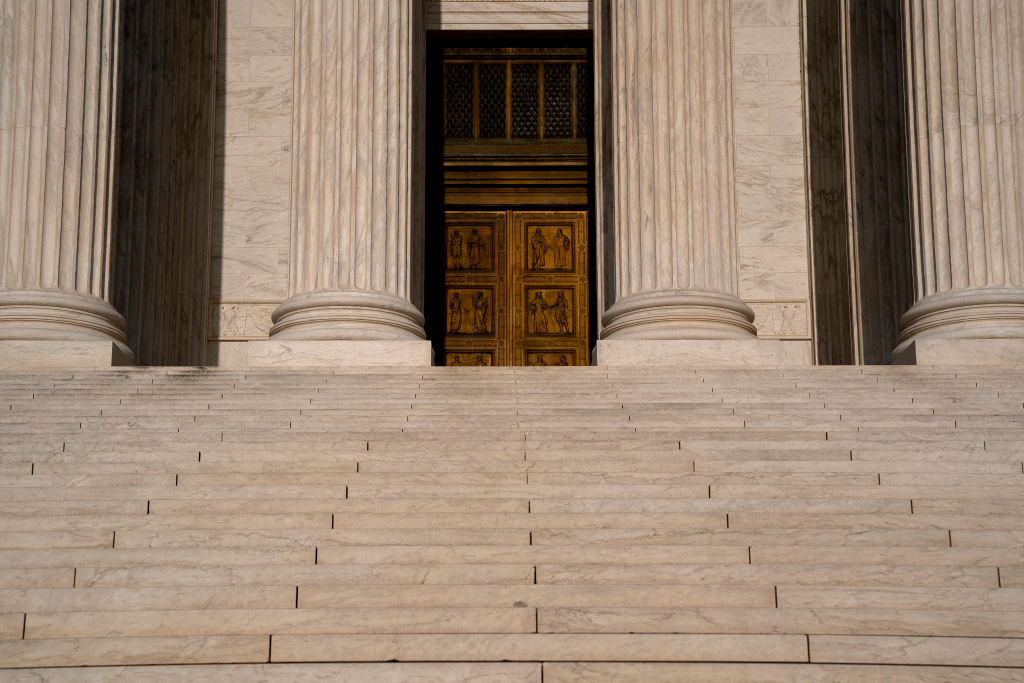The Ten Commandments return to federal court
Saints, statues, and church-state separation
More news
Justices dubious about forcing actuaries to use out-of-date assumptions in assessing costs of leaving a multiemployer pension plan
Tuesday’s argument in M&K Employee Solutions v Trustees of the IAM National Pension Fund showed a bench skeptical of forcing actuaries to use out-of-date assumptions when they work on pension plans.
Continue ReadingOnly electoral reform, not the Supreme Court, can protect against an American Caesar
Justice, Democracy, and Law is a recurring series by Edward B. Foley that focuses on election law and the relationship of law and democracy.
The defining theme of the first year of Donald Trump’s second presidency, at least from the perspective of those who focus on the Supreme Court, has been whether the court is able and willing to protect America’s constitutional democracy from a president who seeks to be an autocrat.
Continue ReadingThe relist logjam finally breaks
Updated on Jan. 22 at 6:32 p.m.
The Relist Watch column examines cert petitions that the Supreme Court has “relisted” for its upcoming conference. A short explanation of relists is available here.
On Friday, the Supreme Court granted what may be its last grants of the October 2025-26 term. All of them were one-time relists: Monsanto Co. v. Durnell, involving preemption of tort claims involving the blockbuster herbicide Roundup under the Federal Insecticide, Fungicide, and Rodenticide Act; Anderson v. Intel Corporation Investment Policy Committee, asking what plaintiffs must show to plead an ERISA breach-of-fiduciary-duty claim; Hikma Pharmaceuticals USA Inc. v. Amarin Pharma, Inc., involving the kinds of statements that can render a generic drug maker liable for inducing patent infringement; and Chatrie v. United States, which asks whether law enforcement’s use of a so-called “geofence warrant” to obtain cellphone location-history data violates the Fourth Amendment.
Continue ReadingFour answers to the justices in Wolford v. Lopez
Brothers in Law is a recurring series by brothers Akhil and Vikram Amar, with special emphasis on measuring what the Supreme Court says against what the Constitution itself says. For more content from Akhil and Vikram, please see Akhil’s free weekly podcast, “Amarica’s Constitution,” Vikram’s regular columns on Justia, and Akhil’s new book, Born Equal: Remaking America’s Constitution, 1840-1920.
On Tuesday, the court heard oral argument in a high-profile case that revolved around matters that Americans argue passionately about: gun rights, property rights, and race rules.
The case, Wolford v. Lopez, involves a Hawaii law that says gun toters who wish to carry their guns on private property generally open to the public – places such as shops and restaurants – must secure the affirmative consent of the private property owner. Gun toters cannot simply presume that their guns are allowed. The private-property owner must affirmatively indicate consent – for example by posting a “guns welcome” sign on the premises or by orally indicating that guns are permitted.
Continue ReadingSupreme Court appears likely to prevent Trump from firing Fed governor
Updated at 3:45 p.m. on Jan. 21
The Supreme Court on Wednesday appeared likely to leave Lisa Cook, a member of the Federal Reserve’s Board of Governors, on the job while her challenge to President Donald Trump’s attempt to fire her continues. Although the Trump administration contends that the president acted within the law, a majority of the justices seemed ready to reject the government’s request to allow him to remove her, even if it was not clear whether the justices would send the case back to the lower courts or instead go ahead and rule that Trump does not have a good reason to fire Cook.
Continue Reading